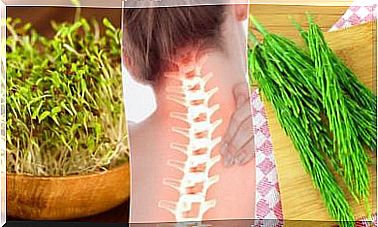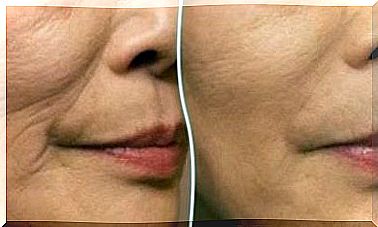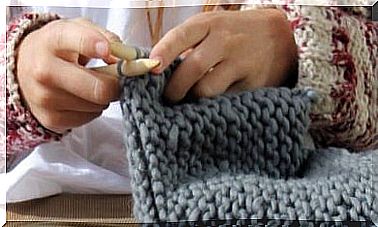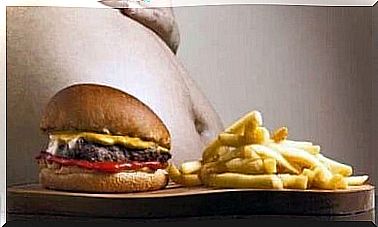Causes Of Constipation In Babies

If your baby is upset and crying, he may have digestive problems. In this article, we will discuss the causes of constipation in babies and the methods to eliminate the discomfort they feel.
What does constipation mean in babies?

Immaturity of the baby’s intestinal tissue is one of the main causes of constipation in babies.
Constipation is a common problem in children. In fact, it is a common reason to consult a pediatrician, as between 0.3 and 8% of children suffer from constipation.
Although there is no clear definition of constipation in babies, a baby is usually considered constipated when:
What are the causes of constipation in babies? The problem can be treated only when the cause of its occurrence is known. That being said, let’s take a look at the potential causes.
Causes of constipation in babies
Before listing the causes of constipation in babies, it is important to remember that most breastfed babies do not suffer from this condition. In fact, they eliminate feces several times a day, even after each feeding. Their stools are generally liquid (or very soft) and have a yellow or orange color.
Here is what can lead to constipation in other situations:
1. Milk formula
Some children are likely to develop constipation in response to the proteins present in the milk formula. According to a study published by the Journal of Pediatrics:
Switching the baby to milk formula can also cause this discomfort. There are milk formulas on the market specially designed for babies suffering from constipation. Seek medical advice to choose the milk that best suits your baby’s needs.
2. Complementary feeding
Another cause of constipation in babies is the start of complementary feeding of the breastfed baby. Adding new products to the diet can cause constipation, even if babies do not generally consume many solid foods in the first months of life.
Remember that the first foods you should include in your baby’s diet are vegetables and fruits. Listen to your pediatrician’s advice to prevent constipation or complications, such as food allergies.
3. Learning diapers
Baby diaper rash is a common cause of constipation.
Some children may suffer from constipation when they give up diapers. The need to use the potty leads to stress. Some babies even reject the use of this device. This can lead to self-induced constipation by refusing the need to defecate because the child does not want to sit on the potty.
4. Dehydration
When parents start complementary feeding, they provide water to the baby. Some babies do not want to drink water at first, and because milk consumption is low, dehydration can occur, especially in the warm season.
If the baby does not consume enough fluids, his stools may harden, making it difficult to remove them. Small sores may also appear in the baby’s anus (you may notice traces of blood when you wipe the baby’s bottom).
5. Medical problems
4 tips to relieve constipation in babies
Certain techniques, such as massages, can help the child to have a stool. If your baby is very upset and in pain or if you are very worried about him, do not hesitate to go to the pediatrician. It will give you some recommendations to alleviate your child’s discomfort.
Here are some helpful tips like preventative measures or solutions for constipation:
1. Massages
Massaging the baby’s belly can help improve bowel transit. Gently but firmly massage the baby’s abdomen with the palms, applying light pressure.
2. The movement
If your baby knows how to crawl, let him do it. All types of movement will help improve intestinal transit. You can help him by moving his legs up and down, as if he were riding a bicycle.
3. Vegetables, fruits and fiber
If you have started complementary feeding, include vegetables, fruits and fiber in the preparations you prepare for your child and reduce the intake of foods that can cause dry stools, such as bananas or rice.









